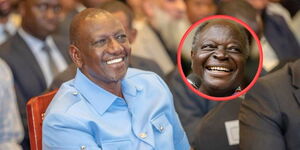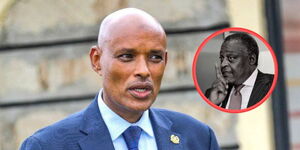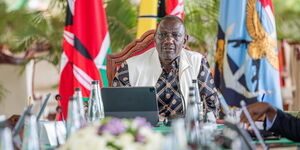The government on December 10 embarked on fresh plans to improve electricity connectivity and make electricity more affordable to Kenyans.
Kenya is set to benefit from the East Africa Power Pool (EAPP) plan that will encompass 13 member states enabling the countries to buy renewable and alternative forms of energy. The new development was unveiled during the EAPP regional conference that began on December 9 and is set to run till December 11.
If implemented, the plan will drastically reduce power tariffs while at the same time ensuring sustainability in electrical connectivity. The plan is set to benefit close to 620 million people within the region commencing in early 2025.
The EAPP member states are planning on introducing a centralised Day Ahead Market (DAM) that will incorporate shared physical infrastructure with mechanisms for low-cost energy.
Under the centralised approach, customers can buy and sell electricity at the financially binding day-ahead prices for the following day, allowing both buyers and sellers to harness the benefits of increased regional power trade. The system will be facilitated through leveraging existing and new power interconnections.
It is expected that the centralised platform will unlock greater efficiency, transparency, and competitiveness, and also enable countries to optimize their energy sources and meet demand while fostering price discovery for fair and equitable trade.
The project is being spearheaded by the EAPP, World Bank, and the Kenyan Government bringing together regulators, utilities, international experts, development partners, and regional stakeholders.
While speaking at the sidelines of the event, Energy CS Opiyo Wandayi expressed his excitement and optimism at the new development stating that it would bring change to the energy sector in Kenya.
“This is a remarkable achievement, especially in our journey towards operationalizing this market. It will play a key role in enhancing our interconnectivity,” he asserted.
Okaasai Opolot, the EAPP Council of Ministers chair, acknowledged the great benefits that would be reaped from the project.
“We recognize the substantial economic benefits to be reaped from deepening integration of the power sectors in the Eastern African power pool. In paving the way for affordable universal electricity access in the region,”
The new power project comes after the cancellation of the Adani-KETRACO deal by President Ruto that was worth Ksh95 billion. The power deal, which had already been signed by Wandayi, was set to see Adani construct 422 kilometers of vital transmission lines.
The deal involved the construction of three high-voltage power transmission lines and two substations, strategically located to enhance connectivity and stability in the national grid. The 400kV Gilgil-Thika-Malaa-Konza line will stretch 208.73 km and feature new substations in Gilgil, Thika, and Malaa. Meanwhile, the 220kV Rongai-Keringet-Chemosit line, covering 99.98 km, will establish additional substations at key locations, including Rongai and Keringet.
The EAPP is a regional institution that coordinates cross-border power trade and grid interconnection among nations of the eastern Africa region, including Burundi, Comoros, the Democratic Republic of the Congo, Djibouti, Egypt, Eritrea, Ethiopia, Kenya, Libya, Madagascar, Malawi, Rwanda, the Seychelles, South Sudan, Sudan, Tanzania, Uganda, and Zambia.












